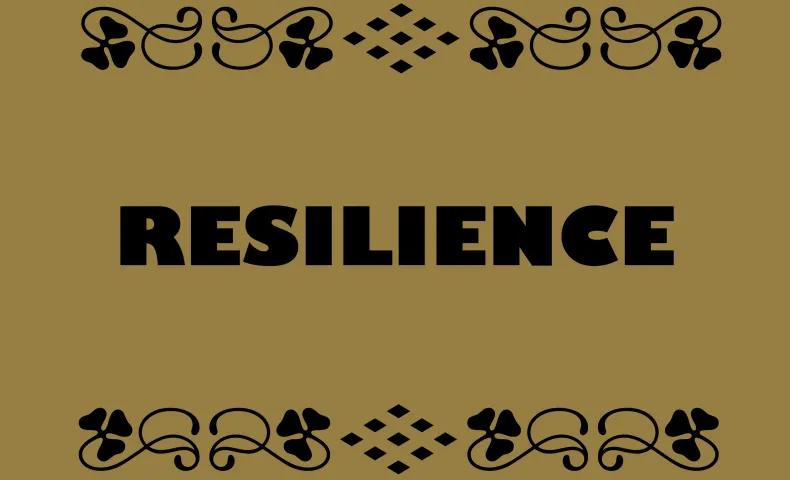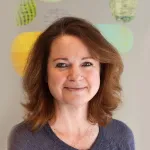 Photo by Ron Mader
Photo by Ron Mader
Resource Leaders
This piece by Jeanne Bell was originally published in the Nonprofit Quarterly.
In any type of nonprofit organization, development staff face a set of dynamics and challenges unique to their role in an organization. Colleagues often do not understand their work well. They are perceived, not always accurately, to have the power to negotiate what and when and how things will be funded. At times, their direct access to the executive, the board, donors, and funders can isolate them from their colleagues more than it positions them as organizational leaders. But in social justice organizations specifically, where open dialogue about race, power, and the distribution of resources is the norm, development staff may face a further challenge: a kind of cognitive dissonance as they move between and among staff colleagues and the spectrum of institutional and individual supporters of their organizations. (See research on these challenges here.) Development directors in social justice organizations—those who really take to the role and thrive in it—enact their purpose in movements of personal significance to them, even as they navigate these complex dynamics.
Resource Leaders, a new fellowship of the Rockwood Leadership Institute launched this January, is specifically designed for these social justice development leaders. Unlike traditional professional development programs for fundraisers, its objective is not first and foremost to impart technical skills. Rather, it is a space for movement-based “Resource Leaders”—many of whom find themselves in development somewhat accidentally through an alchemy of movement passion, personal skillset, and the seizing of opportunities presented to them—to connect to their personal purpose and learn strategies to sustain themselves over the long haul in a profession notorious for burnout and rapid turnover. A list of the 24 inaugural fellows is available here.
Putting the Focus on the Fundraiser (Not the Donor) for the Moment
The Resource Leaders fellowship centers around two five-day residential retreats. For each residence, participants are asked to unplug for the week, travel away from home, and immerse themselves in learning and connection with fellow social justice resource leaders. The first week-long residence in February was called Starting with Self. Participants completed a 360° evaluation prior to arriving and spent the week learning and exploring Rockwood’s six core practices: purpose, vision, partnership, resilience, performance, and personal ecology. (You can read more about these practices here.)
Jonathan Relucio is a Program Manager at Rockwood. As the week progressed, he noticed the concepts of “resilience,” which Rockwood defines as “to shift from reactivity to a state of resourcefulness in moments of stress and crisis,” and “personal ecology,” which they define as “to maintain balance, pacing, and efficiency to sustain our energy over a lifetime” as especially resonant for this group. Neither is surprising given the myriad demands, unruly schedules, and particular pressures of fundraising.
Saurabh Bajaj is Chief Development Officer at the National LGBTQ Task Force, which is the country’s oldest national LGBTQ advocacy group. From the beginning he was struck, he said, by the lack of traditional introductions at the retreat. “They did not start us off with, ‘What do you do?’” Instead, he said, they started with who they are as individuals and what purpose and vision drive them personally. “Conferences like AFP (Association of Fundraising Professionals) offer important technical skills-building,” Bajaj said, “but they kind of assume we can do this work anywhere. That fundraising is transferable. But for us, we are purposefully in these movements and that drives how we approach fundraising.”
Susan Rightsell, Deputy Director of Institutional Advancement at Community Change, which has supported local organizing for economic and social justice across the country for 50 years, remembers thinking on the way to the retreat center in Sonoma, California, “I am getting ready to think about myself for a week. This is going to be a brain change.” Like Bajaj, the focus on self over profession made an impact on Rightsell. “You didn’t know what part of fundraising people were in or where exactly they sat in their organizational structures. We didn’t talk about who are donors were. It was genius.” By the end of the week, Rightsell said, she had come to see the importance of focusing on herself and her vision. “We were flipping it; fundraising is all about organizational and donor vision. It was really moving to me throughout the week to see that our vision [as resource leaders] is something that really matters.”
Gerri Lawrence is currently the Director of Development at Community Coalition in South Los Angeles, though she has played a variety of roles since she arrived in 2011. When the organization lost some development staff two years ago, she was asked to step more fully into fundraising. “I never saw myself touching development,” she says. “It seemed intimidating, not fun, and very stressful.” But there is a strong ethos of leadership development at Community Coalition, Lawrence says. “Leadership development and collective leadership are values here. This is an opportunity to move from managing my own work to also providing political leadership with the management team to the rest of the organization.” When Lawrence applied to Resource Leaders, she initially thought that she would be growing in the technical aspects of her job. “But it became immediately clear that this was going to be about doing the internal work. It is support and skills that allow you to be bold and strategic. The technical skills will fall in line from there and grow with practice.”
Changing Organizational Practice
One striking requirement of participation in Resource Leaders is that the applicants’ executive directors had to have previously participated in a Rockwood program, where they too learned the six core practices. In fact, it was common for the participants to have several, if not many, colleagues at their organizations who had been through a Rockwood program. This addresses a recurring concern about the impact of immersive or transformational leadership development programs: that individual staff return to a system unprepared or unwilling to support them applying what they have learned. Robert Gass, who was among the founders of Rockwood in 2000, spoke to this in a 2011 publication called “What Is Transformation?”
In transformational work, there is a danger of confusing breakthrough experiences with lasting change. In the intimacy of a coaching session or the rarified atmosphere of a retreat, we can create ideally beneficial conditions for human development and watch people expand into their most beautiful selves, like flowers opening to the sun. This can be a meaningful part of the transformational process, as it inspires us to what’s possible. However, the post-experience can sometimes be depressing as we watch our enlightened state start to fade into the trace of everyday life (p. 26).
Instead, with this approach, the opportunity for these leaders to return to colleagues already fluent in the core practices means that both the returning resource leaders and the organization can develop in alignment. As Gass argues, “In organizational transformation, it becomes essential for teams to practice new behaviors together” (p. 27).
Annie Leonard became the executive director at Greenpeace USA in 2015. Having had a powerful experience of Rockwood in 2004, she called Gass, who told her that the program had evolved since then. So, Leonard enrolled again and says, “it’s the most important thing I have ever done.” She nominated Felicity von Sück, their National Canvass Director, for the current Resource Leaders fellowship. Having multiple staff learn the core practices, Leonard says, is part of changing aspects of organizational culture that need to change. “We are activists. In our activist culture, people historically got promoted with very ambivalent feelings about positional power. It’s hard to be a manager in a culture that doesn’t value management.” She also recognizes that as a senior woman of color in the environmental movement where, Leonard says, the “rebel white man culture is still in the air,” von Sück faces prejudice and more scrutiny than many of her peers. Expanding her own national network of colleagues beyond Greenpeace and beyond the environmental movement, Leonard hopes, will give her greater support in navigating the dynamics of race, power, and privilege in fundraising.
Changing Fundraising as a Field?
While the potential impacts for individuals and their organizations seem evident, a more systemic question is also implicit in the design of Resource Leaders. Can a program like this, especially if it is run multiple times over years or decades as other Rockwood programs are, change the field of social justice fundraising in important ways? Rachel Baker of the Evelyn and Walter Haas Jr. Fund, which is funding this pilot fellowship, thinks this is an exciting question. “Beyond the individuals and their organizations, the program is bringing together an incredible group of people in a spacious way at a time of significant adaptive challenges in raising resources for social change.” Alluding to a range of issues from the heightened scrutiny of where money comes from to the work of centering racial equity in organizations and movements to methodologies for digital organizing and fundraising, Baker said, “We need innovative leaders who can do this emergent work, who can help us all find the way forward.”
Lawrence agrees. “Being part of a pilot is exciting to me. I agree with the analysis that there is a need to see development folks not just as facilitators of grants but as leaders who help shape the vision of the organization.” Like many social justice fundraisers, her movement-building perspective is personal and political; it includes, but is also much broader than, fundraising: “As a Black woman, I support building the capacity of Black and Brown people, building their skills and knowledge and support to prevent burnout. It’s about building my team and looking at our organizational culture to support people for the long haul at CoCo, or in movement work in general.”
And given the data on fundraising staff turnover, maybe changing the field starts right there: How do we attract and keep skillful, inspired, movement-driven leaders in social justice fundraising? We already know that development professionals have not historically received this type of investment, an investment that sees them as whole people and movement leaders with a critical role in social change. Just making the investment is a huge first step. As Leonard says, “Programs like this are expensive and travel-intensive. We are small-donor funded and could not send the four staff a year we send to Rockwood without the subsidy of the Hidden Leaf Foundation.”
Still ahead for the 24 resource leaders in this pilot are peer coaching sessions, webinars on emergent topics in fundraising, and another five-day residential retreat in May, this time on the East Coast. The people we spoke to for this article have agreed to talk with us again later in the year so that we can learn more about what emerges personally, organizationally, and for the field when you bring social justice fundraisers together in their own transformational space.
